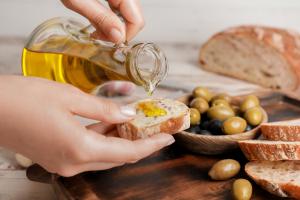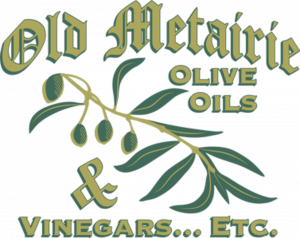Exploring Olive Oil and Bread Pairings: A Guide to Selecting the Right Oils for Dipping
Laura French, owner of Old Metairie Olive Oils and Vinegars in Metairie, Louisiana, has spent years studying regional and international oils. As the founder of a woman-owned business, French offers insights into pairing oils with specific bread styles for both culinary professionals and home enthusiasts. “Matching olive oils with the right bread allows each to bring out the character of the other. A neutral bread can support a bold oil, while a robust bread may benefit from a softer, fruitier profile,” said French.
The foundation of olive oil and bread pairing starts with understanding the types of olive oils available. Extra virgin olive oil, known for its minimal processing and rich flavor profile, remains the standard for dipping. Its flavor varies based on olive type, climate, and harvest method. Oils are typically categorized as delicate, medium, or robust—each with different tasting notes ranging from grassy and peppery to buttery and nutty.
Delicate olive oils, with mild, buttery tones and minimal bitterness, are best matched with soft breads such as ciabatta or brioche. These oils highlight the natural sweetness of the bread without overpowering it. Breads with a tender crumb and airy texture absorb the oil easily, allowing subtle fruit notes to surface on the palate.
Medium-intensity oils offer a balance of fruitiness and pepper, and pair well with sourdough, Italian pane, and semolina bread. These breads often feature more chew and structure, supporting oils that have grassy or nutty characteristics. A medium oil enhances both the crust and the interior of the bread, creating a layered tasting experience.
Robust olive oils, known for their assertive bitterness and peppery finish, require breads with a dense texture and bold flavors. Whole grain, dark rye, and multigrain loaves stand up well to these oils. The bitterness in the oil contrasts with the earthiness of the bread, creating complexity in each bite. This type of pairing is also well-suited for additional toppings like herbs, shaved cheeses, or olives.
Origin also plays a role in flavor. Oils from Spain often exhibit almond and tomato leaf notes. Italian oils may show artichoke, green apple, and subtle spice. Greek oils lean toward smoothness with occasional citrus or herbaceous finishes. Californian and Australian producers continue to gain recognition for their well-balanced oils, often categorized by freshness and varietal expression.
Bread selection matters equally. Artisanal loaves made with traditional fermentation processes often have a sour or tangy note, which can be complemented by a sweet or buttery oil. Conversely, denser loaves with seeds or grains provide a textured platform that absorbs stronger oils without being overwhelmed. The crust’s texture, crumb structure, and moisture content all influence how the oil interacts with the bread.
Seasoning adds another layer of pairing complexity. While traditional dipping often includes only oil and bread, additions such as sea salt, cracked pepper, or balsamic reduction can alter how flavors are perceived. For example, a touch of coarse salt can tame the bitterness in a robust oil, while aged balsamic introduces sweetness and acidity that balance peppery finishes.
Temperature and presentation also affect tasting. Olive oil served at room temperature expresses its full range of flavors, while chilling can mute both aroma and finish. Fresh bread, ideally served warm or lightly toasted, opens up the crumb for better oil absorption and enhances overall aroma.
In retail and tasting settings, providing sample pairings allows consumers to identify their preferences. Some prefer a smoother, buttery finish for casual dipping, while others seek out bold, spicy notes as part of a more complex flavor profile. Recognizing this spectrum allows for informed purchasing decisions and improved meal planning.
Old Metairie Olive Oils and Vinegars continues to support local culinary education by offering tastings, pairing guidance, and product transparency. The business, independently operated and woman-owned, emphasizes responsible sourcing and curated selections from both domestic and international producers. Oils offered in the shop represent multiple harvest seasons and varietals, allowing for exploration across the olive oil spectrum.
As awareness of olive oil quality grows, interest in flavor pairings with traditional foods like bread continues to expand. Chefs, home cooks, and food enthusiasts alike benefit from understanding the sensory relationship between oil and grain. A properly paired oil enhances the bread’s texture and flavor, while a mismatched pairing can mask or distort the experience.
Exploring olive oil and bread pairings is both a sensory and educational process. With an understanding of intensity, origin, and bread composition, diners and cooks can make more thoughtful choices that elevate everyday ingredients into memorable combinations.
Morgan Thomas
Rhino Digital, LLC
+1 504-875-5036
email us here
Visit us on social media:
Facebook
Legal Disclaimer:
EIN Presswire provides this news content "as is" without warranty of any kind. We do not accept any responsibility or liability for the accuracy, content, images, videos, licenses, completeness, legality, or reliability of the information contained in this article. If you have any complaints or copyright issues related to this article, kindly contact the author above.
COMMUNITY SECURITY SERVICE BOLSTERS DEFENSES IN RESPONSE TO ELEVATED THREAT WARNING FROM DHS/FBI
From Messy Moments to Meaningful Memories: 'Once Upon an Amateur Mom' is a Tribute to Mothers Everywhere
Ralph Caruso’s Above The Line Production Rentals Celebrates 10 Years of Growth as Key Supplier to Top Film Productions
Kalendarium
Więcej ważnych informacji
 Jedynka Newserii
Jedynka Newserii

 Jedynka Newserii
Jedynka Newserii

Handel

Ze względu na różnice w cenach surowce wtórne przegrywają z pierwotnymi. To powoduje problemy branży recyklingowej
Rozporządzenie PPWR stawia ambitne cele w zakresie wykorzystania recyklatów w poszczególnych rodzajach opakowań. To będzie oznaczało wzrost popytu na materiały wtórne pochodzące z recyklingu. Obecnie problemy branży recyklingu mogą spowodować, że popyt będzie zaspokajany głównie przez import. Dziś do dobrowolnego wykorzystania recyklatów nie zachęcają przede wszystkim ceny – surowiec pierwotny można kupić taniej niż ten z recyklingu.
Przemysł spożywczy
Rośnie presja konkurencyjna na unijne rolnictwo. Bez rekompensat sytuacja rolników może się pogarszać

Rolnictwo i żywność, w tym rybołówstwo, są sektorami strategicznymi dla UE. System rolno-spożywczy, oparty na jednolitym rynku europejskim, wytwarza ponad 900 mld euro wartości dodanej. Jego konkurencyjność stoi jednak przed wieloma wyzwaniami – to przede wszystkim eksport z Ukrainy i niedługo także z krajów Mercosur, a także presja związana z oczekiwaniami konsumentów i Zielonym Ładem. Bez rekompensat rolnikom może być trudno tym wyzwaniom sprostać.
Transport
Infrastruktury ładowania elektryków przybywa w szybkim tempie. Inwestorzy jednak napotykają szereg barier

Liczba punktów ładowania samochodów elektrycznych wynosi dziś ok. 10 tys., a tempo wzrostu wynosi ok. 50 proc. r/r. Dynamika ta przez wiele miesięcy była wyższa niż wyniki samego rynku samochodów elektrycznych, na które w poprzednim roku wpływało zawieszenie rządowych dopłat do zakupu elektryka. Pierwszy kwartał br. zamknął się 22-proc. wzrostem liczby rejestracji w ujęciu rocznym, ale kwiecień przyniósł już wyraźne odbicie – o 100 proc.
Partner serwisu
Szkolenia

Akademia Newserii
Akademia Newserii to projekt, w ramach którego najlepsi polscy dziennikarze biznesowi, giełdowi oraz lifestylowi, a także szkoleniowcy z wieloletnim doświadczeniem dzielą się swoją wiedzą nt. pracy z mediami.










.gif)

 |
| |
| |
|